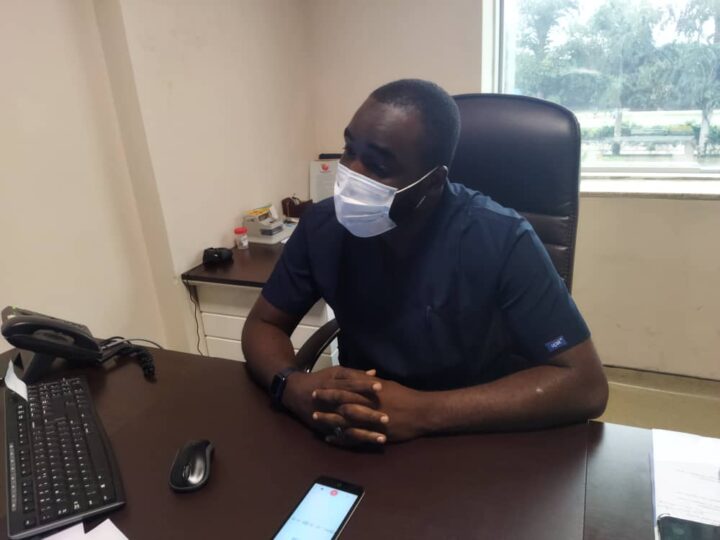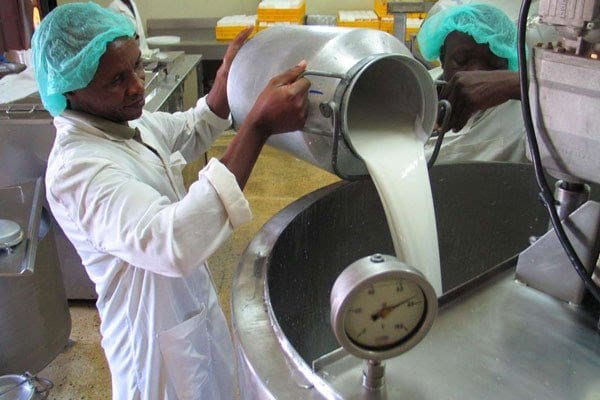On July 8, Nigeria confirmed the index case of the Delta variant of the coronavirus, recognised by the World Health Organisation (WHO) as a variant of concern, given its increased transmissibility. Four weeks later, the country’s infection figure jumped by 590 percent — from 1,484 recorded within one month before the announcement to 10, 252 a month later. In this interview with TheCable’s Samuel Akpan, Usman Balbaya, director of medical laboratory services, Nizamiye Hospital, Abuja, speaks about the importance of antibody tests which can help a person know the level of the immune response against COVID.
TheCable: How does the body develop immunity against coronavirus?
Balbaya: After natural exposure to COVID 19 or after vaccination with COVID 19 vaccine, the body develops antibodies against the virus which helps in neutralising the virus in event of re-exposure. These are the two major ways that your body gets expose and then elicit an immune response to the virus.
TheCable: There are instances that persons who were fully vaccinated, received the first and second doses — but later tested positive for COVID-19. What is responsible for this?
Advertisement
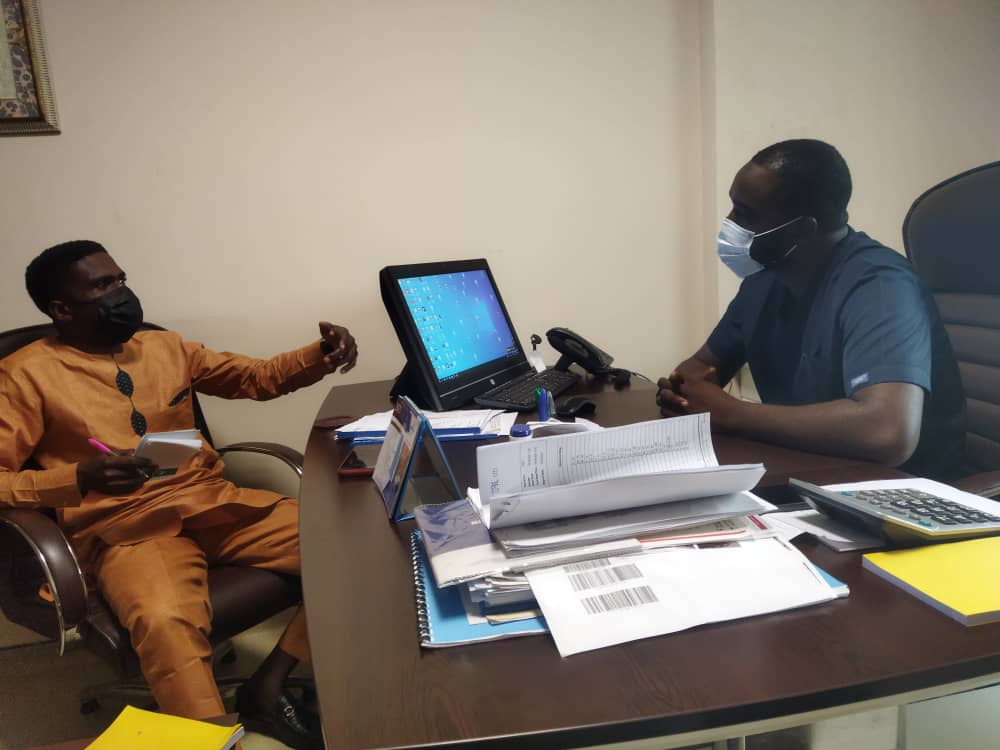
Balbaya: This could be due to a breakthrough. People that we assume have taken the full dose of the vaccine — the first and second dose — tend to be positive for the vaccine. It could be due to the mutation of the virus. It could be due to a different strain of which they are being vaccinated for, most especially now that we are dealing with the deadlier variant. So there is a possibility for that. I, speaking right now, even though I have been vaccinated; I may be infected with the deadlier variant. Just that the difference is — vaccinated persons may likely not come down with the disease. The person may likely not be hospitalised because of the previous vaccination, and may likely not have symptoms because of the previous vaccination that have elicited an immune response in the system. It may likely not have an effect on that person.
TheCable: Why is it important to know the level of one’s immunity?
Advertisement
Balbaya: It is very vital. Number one, you know the world we are in right now, you never can tell the efficiency of the jab you are given. So for you to know that the jab you were given is the correct jab, or is the original one, you have to know the level of your immunity because the correct jab will elicit an immune response. Number two, vaccination generally is determined by the function of the individual that has taken the vaccine. We have different responses to the vaccine. You may respond differently, I may respond differently. There is the possibility that I get a vaccine and I elicit a very strong immune response and there is the possibility that you get the vaccine, the same vaccine and because of the difference in physiology, you tend to have a lower immune response, so I think it is good that people would check and know whether a response has been elicited or not.
So you have to be vaccinated with the first and second jab — fully vaccinated. Then you go for antibody testing. When you come for the test, we take your blood sample and check the antibodies and know whether there is an immune response based on the vaccination that you have taken or not. If you have not taken the correct jab or the effective jab, there is a possibility that you may not have an immune response. So that will give you an idea that you may need to take another jab to elicit an immune response. But if you check and then you have a level of immunity to the COVID vaccine, that will give you an idea that you have some immunity against this virus, and I think is a reason to do the test.
It is so important because the man on the street tend to be exposed more. More gathering, less social distancing, which means a high level of possibility of getting infected or transmissibility. One thing with the Delta variant is that it has a high level of transmission and a high level of contagiousness. So it can easily be transmitted. The Delta variant, based on the studies so far, tend to have additional symptoms than the previous ones (variants). Part of the symptoms include loss of hearing, severe gastrointestinal issues coupled with clotting that may lead to tissue death and they may end up cutting some part of the body and the rest.
TheCable: Why does the government not emphasise the need for citizens to know their level of immunity?
Advertisement
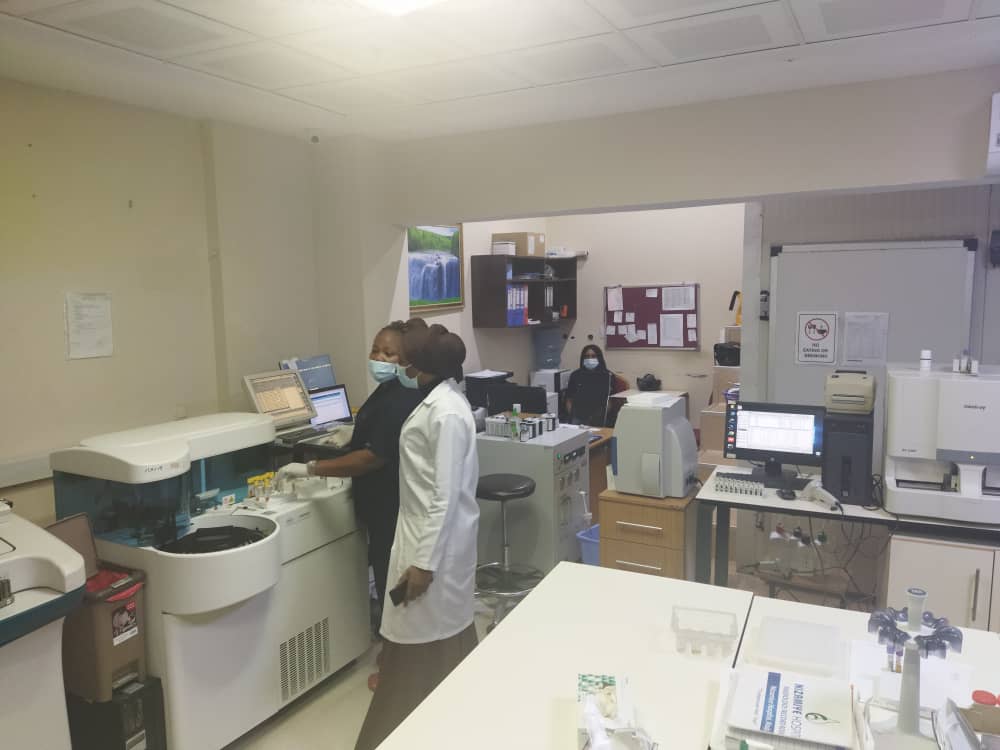
Balbaya: For you to know the level of immunity, you have to be vaccinated. So it is stage by stage. In Nigeria, there are so many challenges. First of all, agreeing to the existence of the virus. Secondly, agreeing to the severity of the virus and the damage it can cause. Thirdly, there is what we call perceived benefit. People need to perceive the benefit of getting the vaccination, of which one of the benefits is getting immuned or having an immune response in the system — the antibody. So when people perceive that, then they will come for it.
The government are still doing something about antibodies but they have not reached that state as it is right now. But just that these institutions need to think ahead, because there is really a need for it. You need to know, most especially now that people tend to lower their guard towards the COVID-19 vaccine and this is the same thing that happened in India. When you lower your guard, there tend to be more infected people, then mutation comes in. That is what happened to the Delta variant in India. If you check around, you will see people not wearing masks and not maintaining social distancing. This is a major factor that causes the genetic mutation in the virus. When it genetically mutate, only people that have enough immune response or antibody in the system would likely not have symptoms or come down with the virus.
TheCable: If you know your level of immunity, how will it help to curtail the spread of COVID-19?
Advertisement
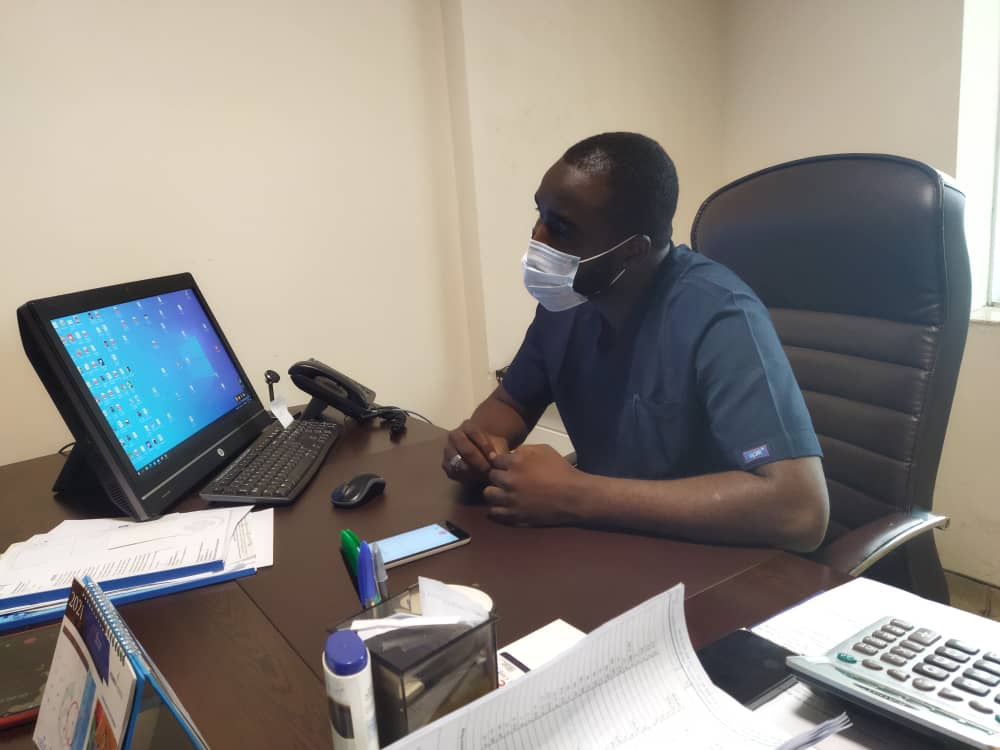
Balbaya: If you know your level of immunity, number one, it has given you the idea that the jab you have taken is a good one. Number two, you can also serve as an ambassador to tell people that you have elicited an immune response, which people will now go for vaccination. When they go for vaccination, the larger population of vaccinated people you have, the lesser transmission of disease.
Advertisement
TheCable: Where can one get tested for immune response?
Balbaya: So far, based on my research, I stand to be corrected, I have not seen any in the country, except this hospital. That is Nizamiye Hospital in the heart of Abuja. The facility for the test has been in existence since 2013, we have opened our molecular PCR laboratory, it has been in operation for than six months now. Since the beginning of COVID we did not open any PCR laboratory, but the pressure was much from all —international organisations, then government agencies. We understood why the pressure was much because they were high cases of fake results. Results that are not reproducible. With the trust in Nizamiye Hospital that all results coming out are valid results, that is why we had the pressure. So we sat down and said okay, let us open our own PCR laboratory also, at least to curb the menace of fake results that have been a serious issue as of that time. And after, we foresee that it is important to incorporate antibody testing because it is a very huge gap that no one is looking towards which is very important. It is very important because, first of all, it even tells you the effectiveness of the jab that you have brought into the country. We thought towards that and then we established the idea of equipping our laboratory with antibody testing. We are using the quantum studio which is one of the Thermo fisher company production.
Advertisement
TheCable: How affordable is the antibody test?
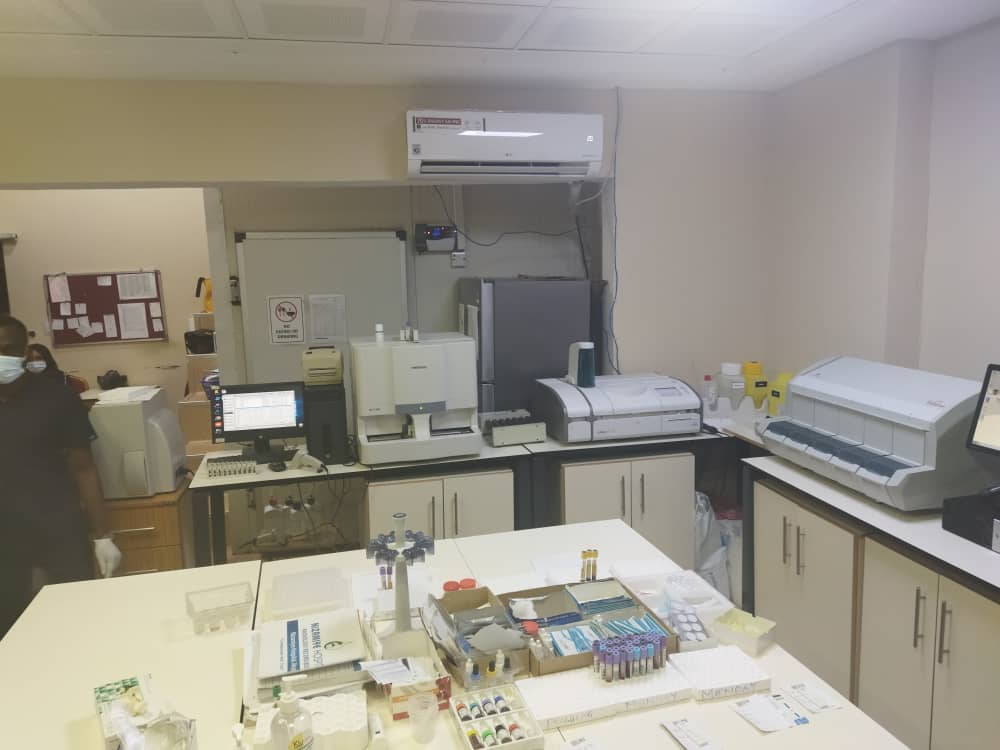
Advertisement
Balbaya: I can say it is very affordable. We have the body IGG and the IGM so it is good that the person checks the two. They are the haemoglobin present in the virus when you elicit antibodies. If we check your sample now and we see an IGM, it basically shows that there is still an existing infection with the virus. So the body triggers that IGM. But if we see IGG, it means it is a previous infection or vaccination, which means you have been vaccinated correctly and then you already have antibodies against the virus in the system.
TheCable: There is little awareness on the antibody test. So far, have people been coming for testing?
Balbaya: The truth is that there is very low awareness with the antibody testing and I think we have to do more to let people be aware of the need for this investigation. But other enlightened organisations like the embassies have been calling to make enquiry.
TheCable: How long does it take for the result to be ready?
Balbaya: It takes 48 hours for the result to be ready. The sampling method is blood. It is antibody testing, so we use a serum. People need to know their antibody status with respect to the COVID-19 vaccine, most especially now that we are entering the third wave.
Add a comment
